- Briefing paper
- 9 January 2023
The more, the merrier? Gender norms and access to digital technology among urban youth in Mozambique
- Author: Irene Selwaness, Rachel Marcus
- Published by: ALIGN
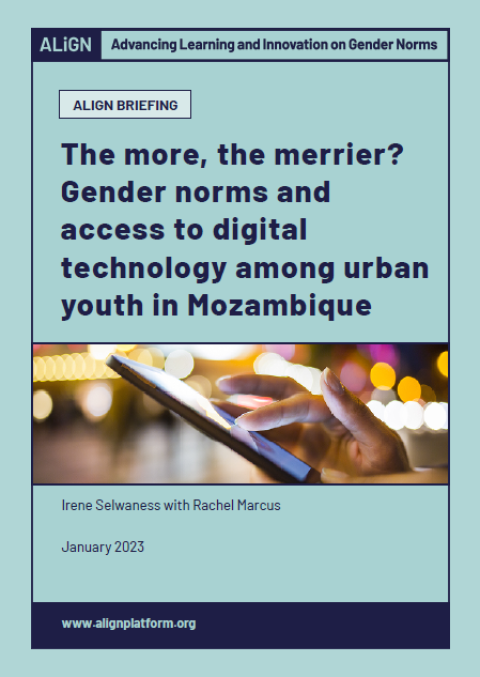
The use of smart phones and social media is growing rapidly worldwide, particularly among the young people who are among their most enthusiastic users (Hampshire et al., 2015). Access to and use of digital technology, – and particularly social media – can be linked to positive changes in gender norms, attitudes, and behaviours and, therefore, to the potential empowerment of young women (Washington and Marcus, 2022). Yet, little is known on the association between the use of digital technology and gender norms, particularly in sub-Saharan Africa, and most previous studies have relied on qualitative and descriptive analysis.
This report draws on two waves of the Urban Youth Panel Survey conducted between 2017 and 2020 in urban, low-income areas of Maputo and Beira in Mozambique. The survey was conducted by MUVA, an economic empowerment programme for the country’s urban youth with an emphasis on urban women. The report examines how far access to and use of digital technology, whether by owning a smart phone, having a social media account or making frequent use of a computer, is associated with gender norms, attitudes, and behaviours among urban Mozambican youth; how this differs between young men and young women; and the importance of its association with gender norms in comparison with key socio-economic factors such as education, employment and household characteristics.
Our findings suggest that 46% of young men and women own a smart phone, with a slightly ownership among young men (51%) than among young women (42%). Far more young people have social media accounts than actually own a smart phone, as it is quite normal to borrow smart phones from someone else. On average 64% of young men and women have at least one social media account. Again, young men are more likely (76%) than young women (55%) to have at least one social media account.
This report uses two main indicators on gender norms that from the MUVA survey data: decision-making power and attitudes around women’s engagement in leadership positions.
It finds that young women in urban, low-income areas of Maputo and Beira are far less likely than young men to take decisions alone or to be involved in decision-making. In addition, young women have much more egalitarian attitudes, on average, than young men around women’s engagement in leadership positions. This is the case even though young women reported that they had less interest in leadership positions than men.
Our findings suggest that there is no significant association between owning a smart phone or the frequent use of computer and decision-making patterns, but exposure to social media or increased usage of social media seems to have a significant association with increased decision-making, on average. Yet, the relationship between social media and decision-making differs between young men and women. We find that exposure to social media has a significant association with increased decision-making among young men, and that the more social media accounts young men have, the greater their decision-making power becomes. But this is not the case for young women. Having any number of social media accounts does not relate to any increase in their decision-making power.
Finally, we found that access to digital technology is not as influential as socio-economic factors – such as education, employment, and financial autonomy – in terms of decision-making power and attitudes towards women’s engagement in leadership.
- Tags:
- Technology, Social media
- Countries / Regions:
- Mozambique
Related resources
Report
20 October 2025
Published by: ODI Global
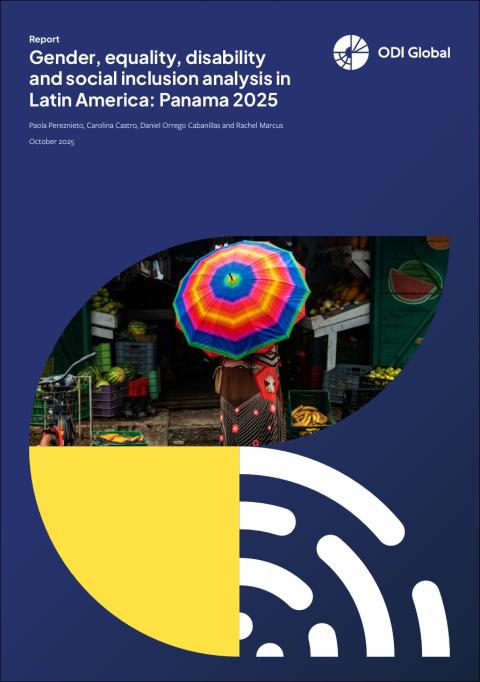
Blog
10 February 2025
Published by: ALIGN

Report
19 November 2024
Published by: ALIGN, Mexfam
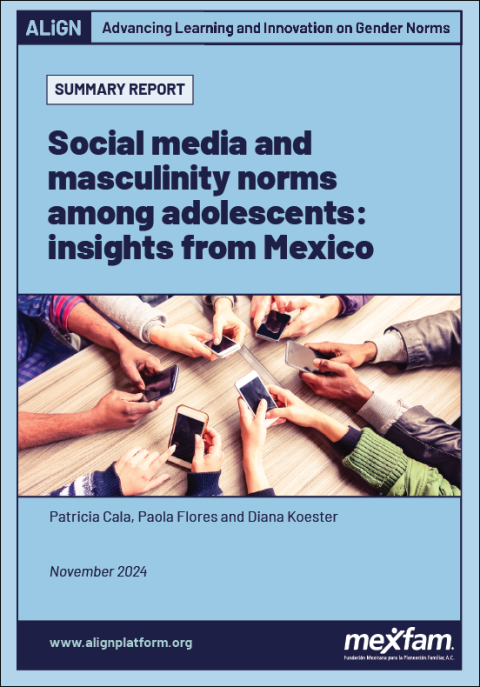
Report
30 September 2024
Published by: ALIGN, Frente Nacional para la Sororidad

Report
5 February 2024
Published by: ALIGN
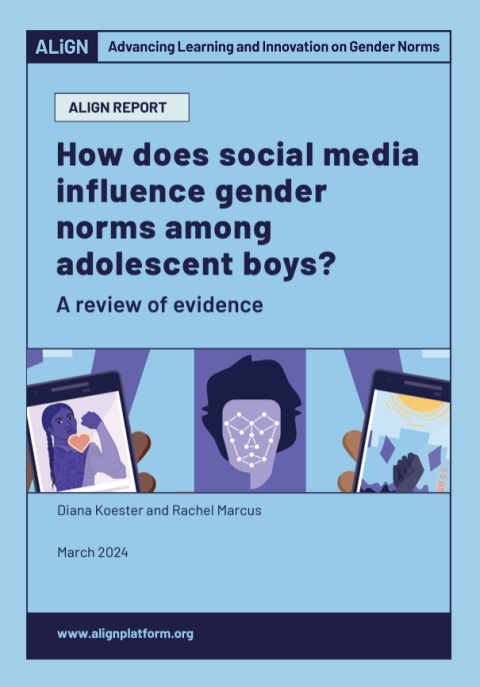
Report
2 February 2024
Published by: UCL IOE, University of Kent

Report
1 January 2024
Published by: MAGENTA, Nos Queremos Vivas Neza, Lilas A.C.
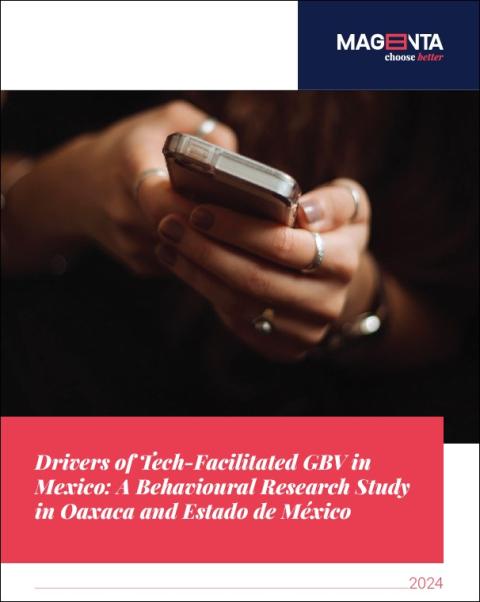
Report
1 January 2024
Published by: MAGENTA, Nos Queremos Vivas Neza, Lilas A.C.
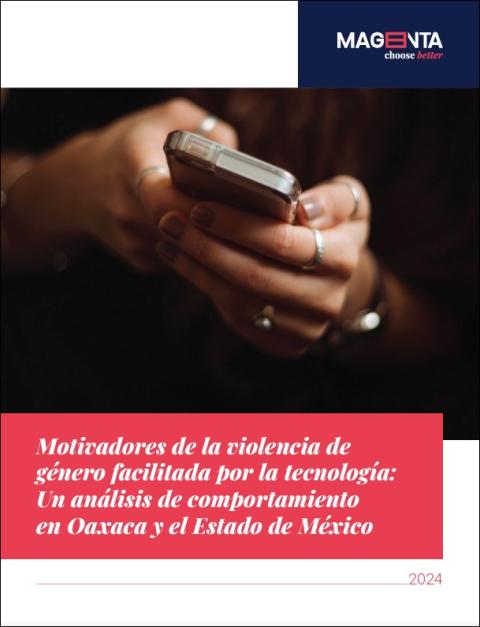
Briefing paper
2 October 2023
Published by: ALIGN, Nehanda Centre for Gender and Cultural Studies
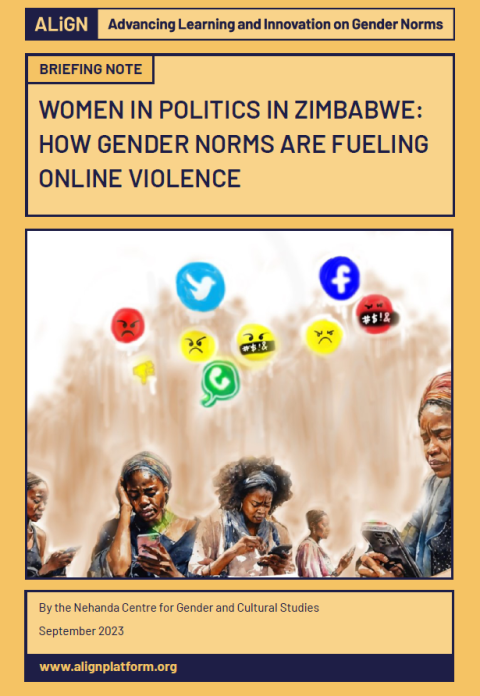
Toolkit
13 July 2023
Published by: ALIGN
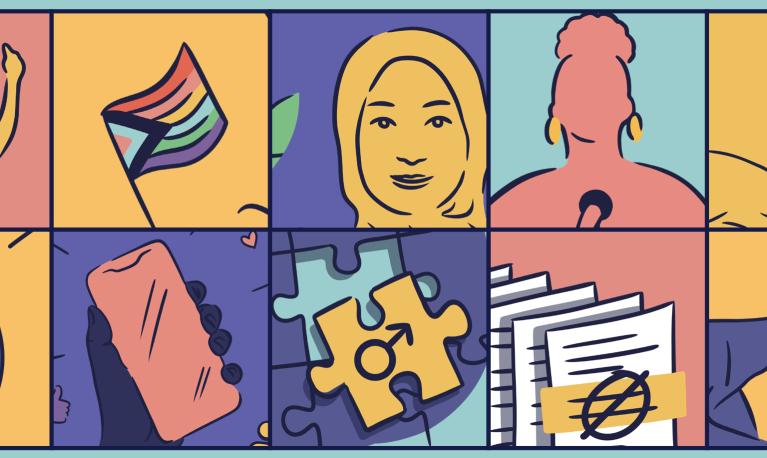
Report
1 June 2023
Published by: MAGENTA

Briefing paper
31 March 2023
Published by: ALIGN
